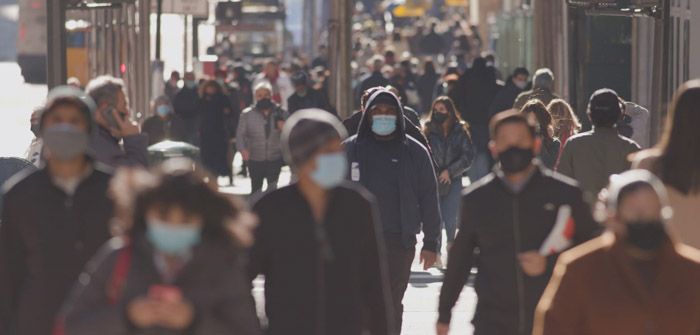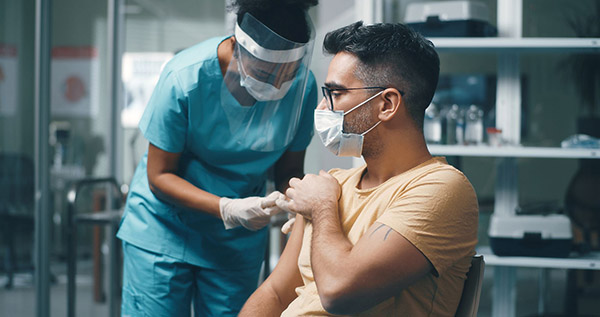If there’s one thing the COVID-19 pandemic has taught us, it’s the importance of taking care of our health—both physical and mental. It’s a serious health issue that needs adequate attention as we hope to reduce the risk of transmission, if not eliminate it altogether.
With strict health protocols to mitigate the spread of the virus, people have understood better how much COVID-19 threatens the world. This has resulted in a shift of our priorities, with health at the front and center.
Additionally, intensive research in epidemiology, which has shed light on how COVID-19 spreads, is essential to efforts to contain this pandemic. With that, here are some lessons COVID-19 has taught us about handling communicable diseases.
- Healthcare Is Everyone’s Responsibility
If there’s anything symbolic of the COVID-19 pandemic, it’s the use of face masks. Nowadays, they’re not a mere component of personal protective equipment (PPE), they’ve also become integrated into fashion. But more than this, the merit of using face masks is about how commonplace they’ve become.
Using face masks and other accessible PPEs represents the personal involvement of citizens in helping mitigate the risk of COVID-19 transmission. And since the central idea of PPEs is protection, most have now understood that protection is two-way: protect yourself so you can protect others.
With the enlistment of the general public’s cooperation in combating the coronavirus and the mindset change mentioned above, we could only hope that humanity stands a better chance at conquering this deadly pandemic as it did with the bubonic plague and the Spanish flu. Medical science can only do so much; thus, the citizens must also put their faith in health protocols and understand the role they have to play in their effectiveness. In addition, an informed and involved citizen can become an advocate who can help mitigate the risks of spreading infection and aid in promoting awareness.
Identifying the incubation period of COVID-19 and other infectious diseases is also critical. The incubation period refers to the number of days between the time you’re infected and the time you might show symptoms. For instance, knowing how long the herpes outbreak lasts is essential because it determines how long you need to stay away from a person with this virus, so you don’t get infected.
- The Socio-Economic Stakes Are Serious
During the pandemic, the whole world was disrupted. Many businesses had to close down, numerous employees were laid off, and students were asked to stay home, among other life-changing consequences. But we learned to navigate around the pandemic. The world adapted to the new normal, resuming its activities, but this time at a completely different pace and manner.
It’s easy to say people should save up, but for many, their salaries are only enough for survival. This leaves many people from the lower class unprepared for the rainy day, in this case, an unexpected global pandemic. Because of this, governments had to cautiously relax some restrictions about the lockdown to support the struggling economy. In turn, people braved the streets once again, anxious but eager to get back to work.
That’s why governments should provide better opportunities to enable their citizens to secure a financial safety net that can sustain them during this unexpected crisis. This will reduce the need to go outside, minimizing the risk of contracting the virus.
- Vaccines Are Important, But They’re Not Enough
With the rising cases of COVID-19 and the continuous mutation of the virus, the logical solution is to formulate an effective vaccine. Essentially, a vaccine mimics the virus or bacteria causing the disease, triggering the body to produce antibodies. While medical experts have yet to develop a vaccine that provides total immunity to the coronavirus, the vaccine we have, by far, has given us a fighting chance.
However, aside from getting vaccinated, people have come to realize that good hygiene and a healthy lifestyle are essential, pandemic or not. Washing your hands, disinfecting frequently touched surfaces, observing social distancing, and other safety health protocols are now part of our daily routine.
Businesses have also leveraged the pandemic by selling products like automatic sanitizer dispensers, portable alcohol spray bottles, and the list goes on. The pandemic shifted the market to something that may stay even post-pandemic, should that time come. This means the market will further encourage products associated with hygienic habits to curb the spread of infectious diseases.
Final Words:
We’ve all suffered a great deal because of the COVID-19 pandemic, as we were unprepared for a health crisis of this magnitude. Although we’ve learned painful lessons along the way, it has made us stronger, wiser, and hopefully, better prepared next time around.






